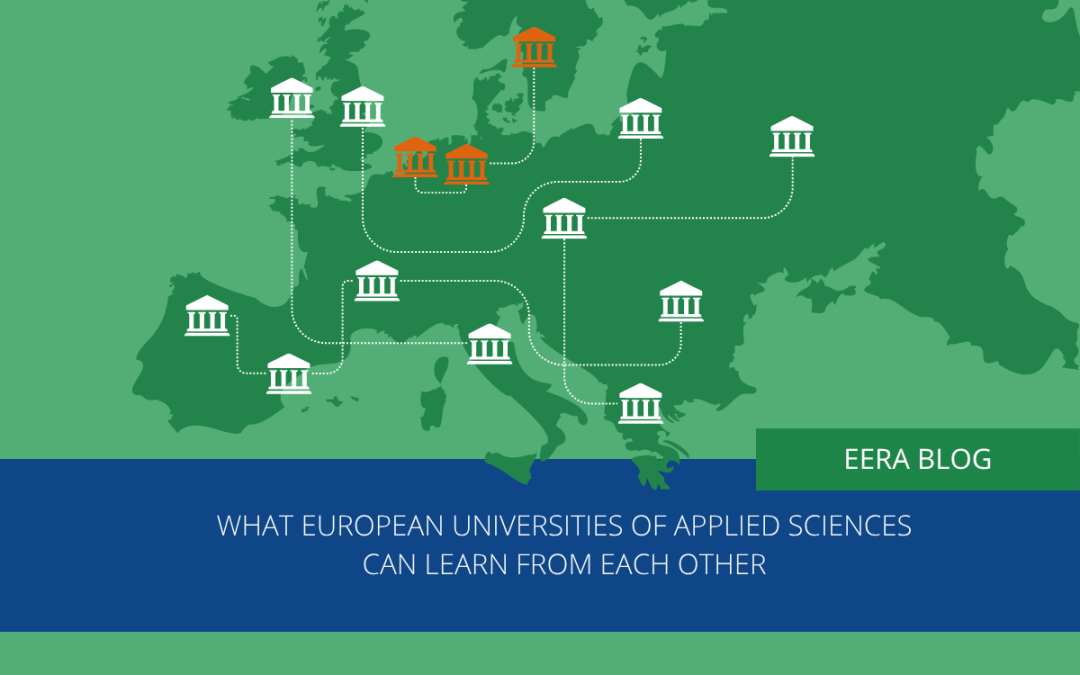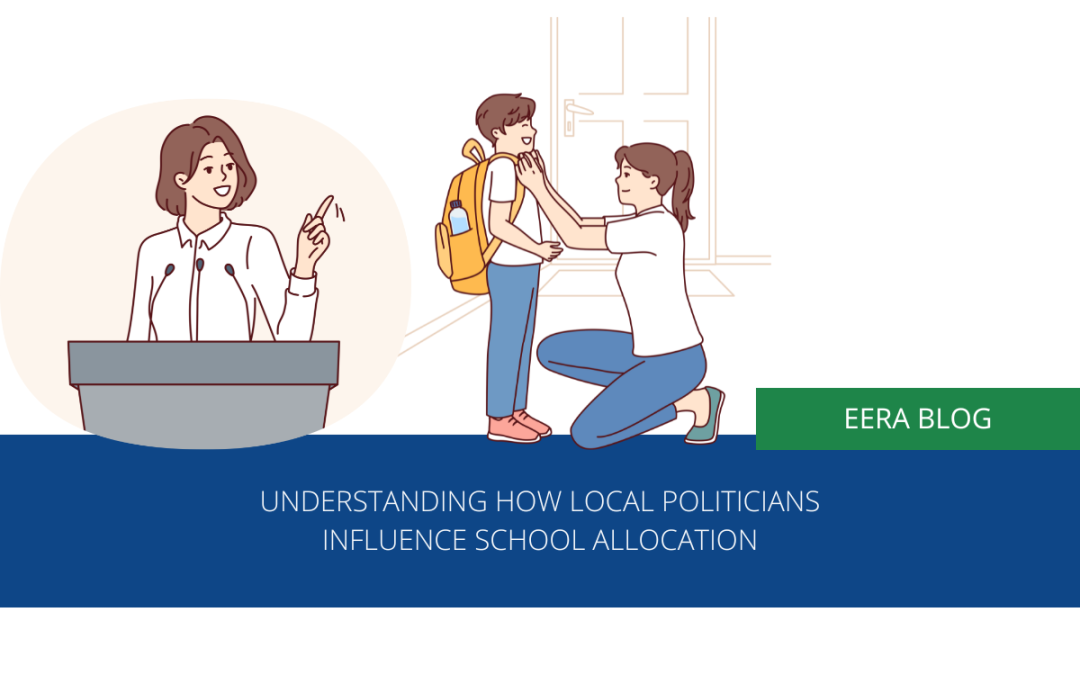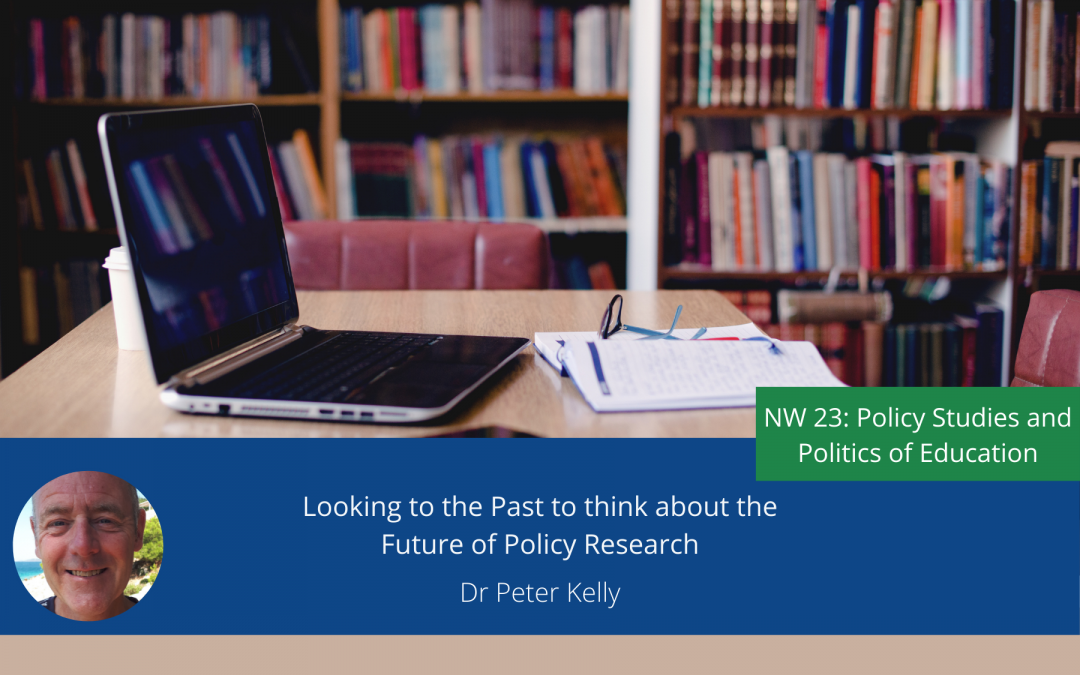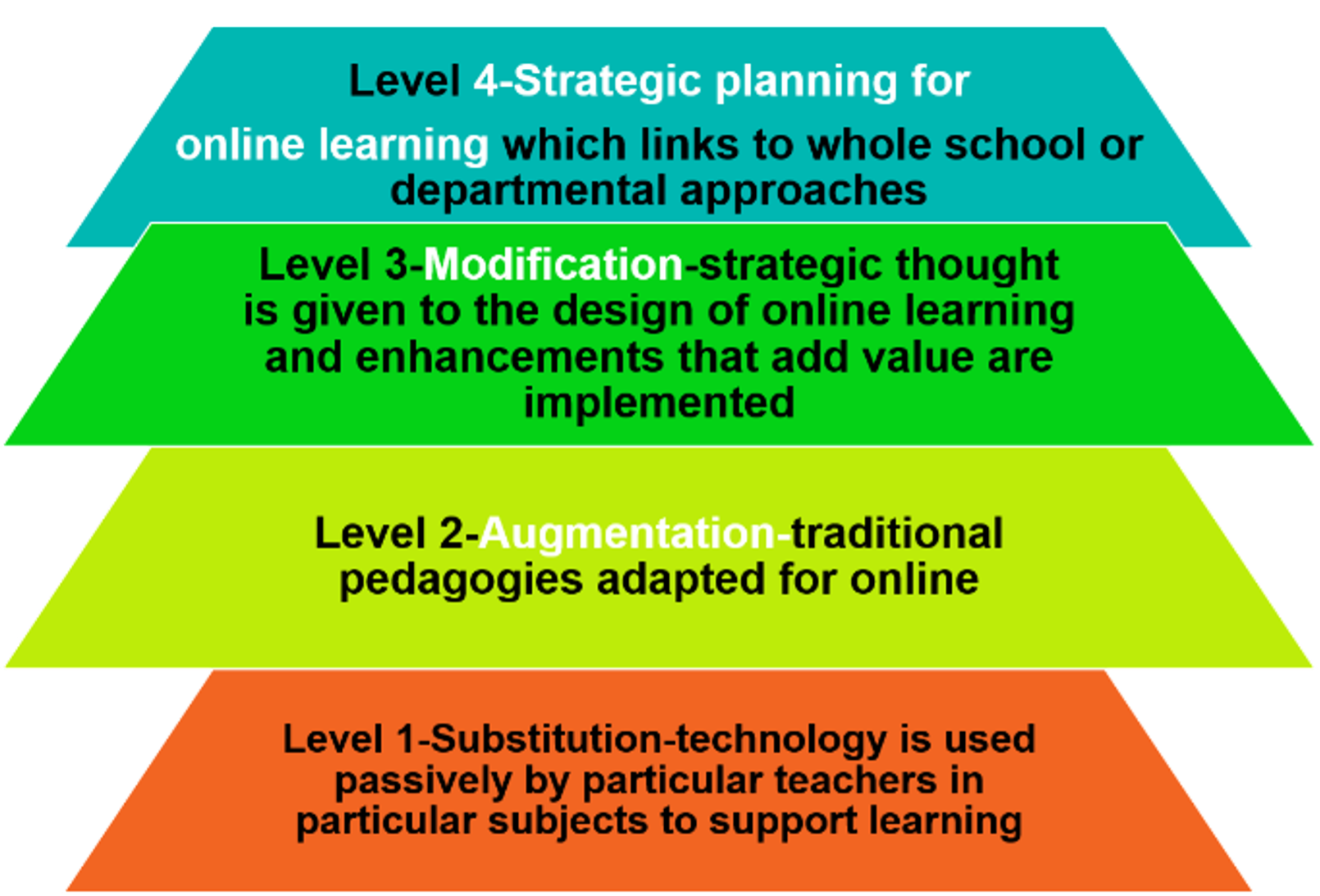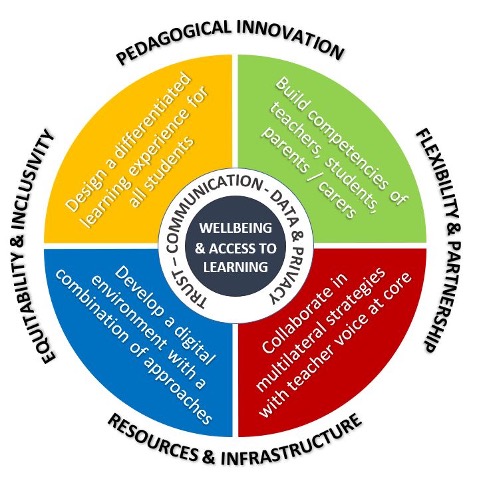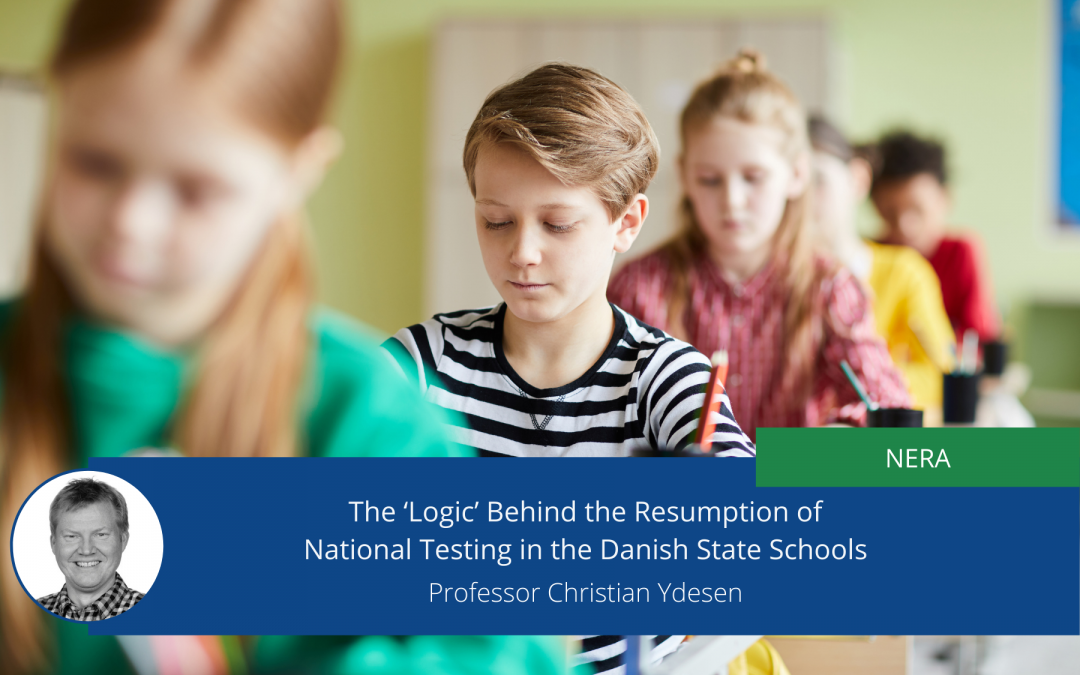Video Transcript
Hello. I’m Gunnar Iselau and I get a lot of questions from my international colleagues. Everyone starts in the same way. How is it that Sweden, which has had such a well-functioning school system, now has such a polarized and international questioned system? And that Sweden, which was at the top in terms of knowledge, now has fallen so low. And that’s Sweden which was the world’s best at helping those students in need, is now letting these students sink.
The summary of the questions is how it is that Sweden, which is so rich and has all the possibilities, has created a polarizing school system that threatens the entire base for its democracy?
The Swedish education system does not work as intended based on school laws and regulations for the school. Instead, every level of responsibility in practice interprets in their own way. Instead of enforcing the common rules, the result is a lottery both regarding equivalence and learning.
Which possibilities a student gets depends on the municipality, school, and teacher. What could it be due to? In various international contexts, I’ve presented the basic reasons that can explain why nothing happens despite a lot of efforts being made.
Colleagues from different countries who have heard me have now requested these reasons, so I will present the top 10 obstacles in about 20 minutes including possible solutions.
See this as a starting point for your reflections on the school situation in your own country to discover and avoid, and if necessary, improve.
And what do I base my experience on? I have served at the National Agency for Education’s evaluation department for a long time. There I have participated in and been responsible for evaluations, had dialogues with the Ministry of Education, within universities research, and recently been hired as an expert by authorities and municipalities. In this way, I’ve gained a meta-perspective on the situation for the Swedish education organization.
Everything I know we describe should be perceived as positive even if it’s negative. And to make it clear some descriptions are in black and white. To make a point what I am describing is the usual situation although there are of course exceptions, but they are just exceptions.
The first step is always to realize how it is in order to change – as in the emperor’s new clothes, if you read this story. All my points are in line with both Swedish laws and regulations, school research and evaluations of the Swedish school system. Some of my reports on this are available in English. Some are also for use by the OECD.
The basic question is why the Swedish schools’ equivalence and quality have declined despite all attempts to make them better. The efforts made over the past 25 years can be summed up by the fact that never have so many made so many efforts in Swedish schools at such an enormous cost, with so little efficiency. So, what is the problem with the Swedish school organization and how can it get better?
Here is a description in 10 points in about 20 minutes.
Number one. Levels of responsibility in the school system.
It’s a horizontal spinning system. The Swedish governance of the school is divided into different levels of responsibility. The National Ministry of Education has given the municipal assemblies the responsibility to organize their schools so that each principal can lead the school. So that each student achieves the national goals. So, it is three main levels. The national government, the municipal assemblies, and the school unit level.
The problem is that these levels are like different worlds. Each level works in its own way, according to its own perceptions of what to do. Not after the national mission. In an effort to improve, each different level does more of the same thing, which makes it worse. We can call this “horizontal spinning”. It is common for each level to shift its responsibility to the level below.
Finally, the responsibility for students’ learning has dropped to the student themselves. And when the student is in trouble, especially if he or she hasn’t parents who can help. No school organization wants to prevent students from learning.
Sweden does not want that either but still, it is what is happening. And how to fix this?
The first thing is to make sure that each level of responsibility does not decide for itself what to do or follow the municipal routine which often focuses on secondary tasks. Instead, the action of the levels must be based on the assignments in the national government documents. That is what the Swedish taxpayers pay for, and the students have the right to, and what the democratic society needs. Therefore, ensure that the upper level in the school organization acts so that the next level can fulfill – and really fulfills – its national mission. Otherwise, it will be as it is.
Number two. Knowledge goals.
They are lowered to suit a worse result. Only 80% of students reach the national goals each year. A situation that has been going on for several decades and which has been implicitly approved by the National Ministry of Education, and their supervisory authorities. This means that 20% of Swedish students have not been given the conditions they are entitled to. 20 000 students per year during each year.
The responsibility lies with the National Ministry of Education which has not clarified the municipal assembly’s responsibility to give each student equal opportunities to achieve the national goals.
The National Ministry of Education has, through its failure to enforce the Education Act in practice, accepted the municipal assembly’s own interpretations of the Education Act. Which is startling but has become normal. The rankings published by various interest organizations for teachers and employers have contributed to the maintaining of low goal fulfillment. The municipalities that are above the average in the measurements do nothing more. And those that are below do not consider themselves able to do anything. The years go by, and nothing happens.
How to fix this? According to the curriculum, the teaching is based on the students’ experiences and thinking. Not, as often can be, based on the teacher’s own experiences and thinking. What to do is simple and obvious. Just as national laws in Sweden ensure that everyone in traffic drives on the right side, so the National Ministry of Education must ensure that everyone complies with the Education Act.
This means that the curriculum’s goals and guidelines must guide the teaching.
Not the teachers’ different opinions on what to do. This will increase the conditions for the students learning.
Number three. Nationally governing.
It’s more to be governed, than governing. Instead of governing, the National Ministry of Education afterwards tries to support – with extra resources and targeted efforts – when the municipalities and schools prove not to work. The municipal assemblies and their economists are grateful when they do not have to take their given responsibility. These rescue efforts have been done for the past 20 years and did not even work from the beginning. But it has become an alibi for both the municipal assemblies and the national Ministry of Education that something is being done. And gives a deadline that is further ahead to wait and see. But it does not get better. And then try again in the same way with the same result. And it does not get any better.
That the Swedish schools inspectorate criticize the officials in the municipalities when something is wrong but spares the politically responsible. Then it’s difficult to get a change. The root cause is that the municipalities organization is Teflon coated. All attempts by the National Ministry of Education to do something that changed the municipalities routines slip away and disappear.
And how to fix this? The operation is simple. The National Ministry of Education requires the municipal assembly to comply with the Education Act. And in that way, make sure that every student gets the conditions to feel safe and learn. In addition, the national government should once again earmark the economic contributions for schools, and repay what the national government saved in the 1990s when they left it to the municipalities to take responsibility. In this way, both the municipal and the national bodies benefits as the need for money for plasters – that is to say emergency measures – decreases.
Number four. The municipal assemblies’ governors.
“What? We?” Because the Swedish municipal assemblies have not seen or accepted their responsibility for each student, they have used money that could have created equivalence and quality in the school for other things. Then, it costs them many times as much to try to repair the damage that has occurred, to patch up the failed teaching.
Students who do not receive the opportunity cost a lot in extra support measures, as well as later in social expenses, labour market measures, and some unfortunately in prison care costs. It can be said that the sails that would be used to move the school ship forward must instead be used to seal the holes in the leaking school ship.
What will be the effect of the Swedish municipalities keeping a low teacher wage level for almost 30 years? Well, they have lost talented teachers who earn more in other professions. Instead, they often have teachers who could not be anything else. In addition, many of the teachers do not even have a teacher’s degree. And the question is – what does a teacher’s substandard teaching costs the students who do not get the opportunity to learn that they are entitled to? And what does it cost society?
When the municipality reduced teachers’ salaries and fewer people wanted to become teachers, the Swedish national ministry of education tried to help by lowering the admission requirements for teacher education. Double error. Poor competence of the teachers hardly benefits the students’ learning.
And how to fix this? The question is what is the best effect for the money invested in the school? Swedish and international reports are clear. The best financial outcome is to secure and, if necessary, increase the teachers’ competence to teach. Because Sweden has not invested in it so far, this is the biggest potential success factor in Swedish schools. A necessary premise is that the focus in the system must change. From focusing on the final result to ensuring the quality of the ongoing process – that is the teaching – which is what affects the result.
Number five. The Head of Education in the municipality.
They released the steering wheel. The responsible local politicians have officials who will organize the assignment, based on the resources provided. Responsible is the Head of the Education department in the municipal. That is the case in theory but not in practice. It is common for the Head of Education department in the municipal not to ensure that the principal performs – and can perform – his or her duties. The alibi is often that the principal says to the head of the administration, “I have a government assignment, so I take care of it myself”, and both execs then can do what they think is more important or easier. It becomes a win-win situation for them, but a losing situation for the students, who remain in their difficulties.
How to fix this? Yes, you will probably see the necessary action directly. It is that the municipal assembly places as the first requirement on its Head of Education to ensure that each principal can carry out – and carries out – his or her assignment. And it is to make sure that the teaching works for each teacher. Then the Head of Education has fulfilled their task. Perhaps the most important contribution as it also becomes a model for the principal’s approach to their teachers.
Number six. Principals.
They hand over their pedagogical leadership to each teacher. In Sweden, there is often a division of property between the principal and the teachers. We teachers take care of the quality of teaching so you as a principal can take care of the rest. This makes life easier for the principal and for the teachers but not for the students. Because Swedish teachers are alone. No one follows how their teaching is conducted. Students in difficulty remain in difficulty. It should be noted that the principal in fact also commits misconduct. For the principles task in the curriculum is precisely to be a pedagogical leader. As this, the principal is responsible for following up on the teaching and evaluating school results in relation to the national goals and the knowledge requirements. The principal is also responsible for the results of the school. In Swedish schools, principals often do – or must do – other tasks than being pedagogical leaders. As a result, the situation is as it is. The same year to year.
And how to fix it? This is most important. It should not be a lottery what chance a student gets depending on the teacher’s skills. Therefore, the principal must ensure that each teacher has – or develops – three basic competencies according to school research. Relationship competencies, leadership competencies, and didactic competencies.
The view of a good teacher must be defined. It is not the one who gives high marks or leans his teaching toward a textbook. Nor it is to be able to motivate the already motivated students. What is the criterion for a good teacher? Well, it is to be able to motivate the unmotivated student. The day when this criteria becomes crucial in wage setting, then something happens in the Swedish schools.
Number seven. Quality assurance.
It’s fruit without seeds.
Each principal and each Swedish municipal assembly must, according to the Education Act, make an annual quality assurance to follow up and develop the education. But how is it in practice? It is not done – or it is made by each principal according to their own opinion, often focusing on what they have done but a little on what they have achieved. And no descriptions of problems or what to do about them. Or it is the management’s description, which often is overfilled with excel statistics that no one can interpret or interprets in different ways.
In summary, the Swedish quality work does not work. It has no core that builds the future and often no one but the author of the report cares. How do we know that Swedish quality assurance does not work? Well, then quality improvements would have made it better, right? But nothing has happened. The same situation year after year.
And how to fix this?
The starting point for evaluation should not be the staff’s image, but the students’ own descriptions of the situation. The current situation of their well-being and their learning. It is this image that governs their actions. So it is the student’s image that all improvement starts with, not the adults’ image of how they think the students feel.
Also, the focus must change from what has been achieved to what remains. Which should not be described as common as aggregated percentage. Instead, for each school, state the number of students who have not achieved the goals. This then becomes concrete both as a challenging starting point and to follow the effect of measures. It is the student’s image of their situation that constitutes the fruitful core. The one that is the common starting point at all levels of responsibility to coordinate and – if necessary – to improve.
Number eight. For-profit independent schools. A loss for all but one.
In Sweden, as the only country in the world, you can start a school that is paid for with tax money per pupil. And if there is money left over, take it out as a profit.
Will there be money left over? Certainly – if the owner reduces the cost through cheap premises, cheap staff, and selects students who are easy to teach, the owner gets a fat bank account somewhere. Results improve, the for-profit school’s students are given higher grades but have poorer knowledge than municipal ones when these are measured equally.
Freedom of choice is positive words but hides increased segregation by the fact that some schools attract certain students. The result, together with segregated residential areas, has been that Swedish schools have gone from mixed socio-economic school classes to schools being segregated depending on parents’ socio-economic status or religious affiliation. Add that to the National Agency for Education reports that the opportunity you as a student gets depends on peer influence. That is, how to succeed in achieving your goals depends on which schoolmates you have — this has dismantled the equation and well-being in the Swedish society. The misunderstanding of each other and thus the contradictions has increased – like the exclusions of students from school. For-profit independent schools and freedom of choice for some have thus eroded democracy in Swedish society.
And how to fix this? First, do not introduce profit in school activities. It’s not good for anyone except the owners’ bank accounts. If the municipal school does not work well, do not think that increased competition by giving profit to private school companies is the solution. Rather, improve the municipal school equally for all. Cheaper, and better. For if the National Ministry of Education and the municipality assemblies follow the guidelines set out in the national government documents and which I’ve tried to recall here, there is no reason to choose. Then all schools have the same quality. Then the students’ opportunities are not affected by where they live nor by the socio-economic or religious status of their parents.
Number nine. National tests. Something good that became bad.
In the 90s, national tests were introduced in Swedish schools. They were diagnostic. The teacher could compare the image of the student with the image from the national test and thereby get a second opinion for their assessment. According to the National Agency for Education, it should support the teacher to make assessments equally and fairly. Good, if it stopped at this. But the media and politicians began to take in results, rank schools, and see the tests as exams. Then things went crooked.
The results of the national tests were decisive for both the principal status and the teachers’ salary level. The national tests which could only measure paper pencil answers guided the teaching to a lower level. A situation that makes it easier for insecure teachers with a lower competence to be able to teach but disadvantages the students, especially those who have difficulty expressing themselves in text or have a bad day.
In addition, the teachers corrected the students’ answers themselves. Situations are described where the teacher regulates their salary and gives the school a higher ranking by correcting the students’ answers positively.
How to fix this.
Yes, diagnostic tests are good for the often lonely teachers’ assessment. It also concretizes the parts of the curriculum that are measured which is good. But avoid comparative rankings and these take over teachers grading responsibility, then everything fails. By returning to the function national tests should have – a second opinion for the teacher. The teacher’s professional status is increased. It also gives students a better chance of reaching all national goals, even those that cannot be measured with just paper and pencil.
Number 10. School research without practical effect.
Swedish school research is characterized by researchers making research to present their research reports to their research colleagues and thus make it clear. It’s often interesting reports, which then are read and discussed by their colleagues and superiors. But what about principals and teachers? Do they know? No. And if they come across them, do they feel that they can be used in their everyday school life? No.
So, even if Swedish school research highlights how the school should function, it has had no practical effect.
And what is needed to fix this? It’s just one thing. Introduce requirements for tested and repeated results by external parts -at the school level and teaching level – before a research report is approved. Then the results would have an effect in the Swedish schools.
This was 10 points that sum up Swedish school’s problems, but also shows how the problems can be solved, which is stated in the Education Act and in the curriculum, but are not followed so far.
So, really – it’s easy. Just to begin. The basic idea in these ten points is that if all levels of responsibility instead do as intended in the assignment, it’s more likely that the Swedish schools will reach what is intended – the same conditions for all students regardless of municipality, school, or teacher.
I hope these 10 points have stimulated you in your thinking, and how you experience your school organization.
